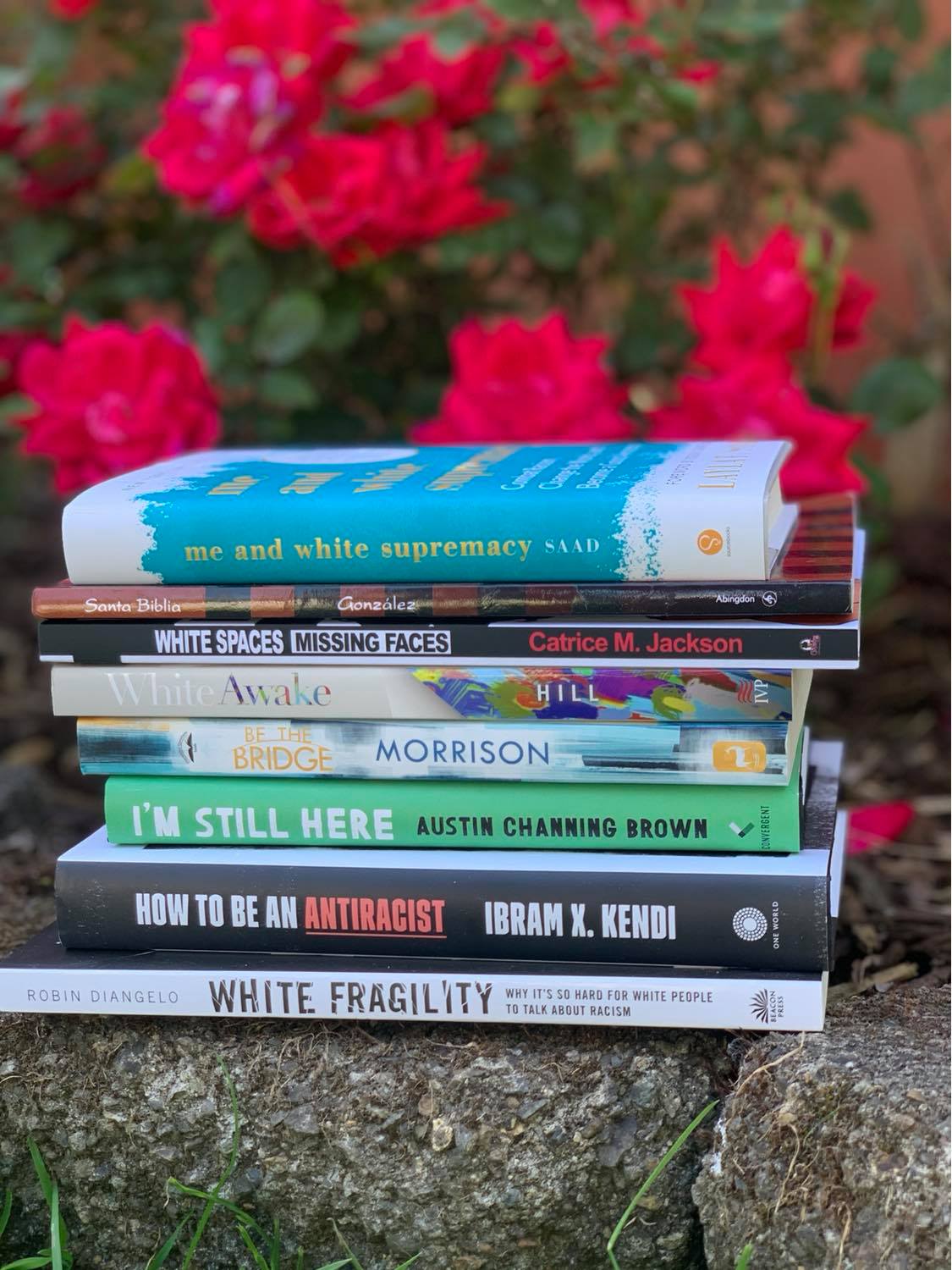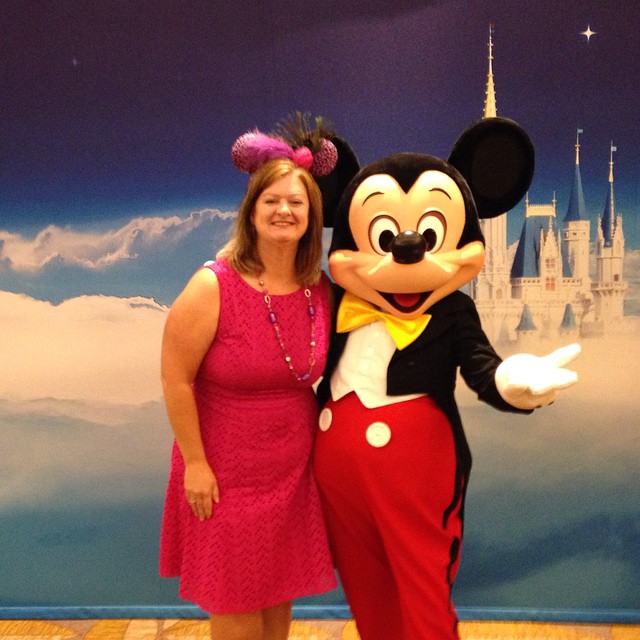The news in the United States with regards to racism has been frightening, to say the least. As a white Christian, I feel convicted to do something, but I want also to do the right things. It is not the job of People of Color to educate us, we must educate ourselves. So I have been combing the internet for books that can help to educate me. I have compiled the following list and wanted to share it so that others can start to learn as well.
This post contains affiliate links, see disclosures for more detail.

White Spaces Missing Faces: Why Women of Color Don’t Trust White Women by Catrice M. Jackson
About the Book:
There has NEVER been a time in history when white women have collectively stood up for or put their lives at risk for women of color; ever! Women of color have centuries of legitimate reasons to NOT trust white women; in personal relationships, on the job and online. Racism and White Feminism are paramount to why women of color do NOT attend, participate, thrive or stay in white spaces. White spaces are toxic breeding grounds for racial interpersonal violence under the guise of “feminism” and women’s empowerment.
White Spaces Missing Faces boldly objects the illusion of inclusion and exposes the unrepentant truth about the Weapons of Whiteness used by white women to silence, marginalize, violate and oppress women of color. White Spaces Missing Faces unearths the covert roots of racial antipathy between white women and women of color and provides radical solutions for relationship reconciliation, reparation and restoration. White Spaces Missing Faces teaches you how to lay down your Weapons of Whiteness to stop assaulting women of color while creating, cultivating and sustaining an environment where they stay, thrive and flourish by denouncing your own racism and becoming an anti-racist Accomplice.
“If you don’t have an anti-racism plan you plan to be racist.” Catrice M. Jackson
Catrice is an author, speaker, and educator and runs anti-racist workshops around the country. Find more information at http://www.catriceology.com/

White Awake: An Honest Look at What it Means to be White by Daniel Hill
About the Book:
Daniel Hill will never forget the day he heard these words: “Daniel, you may be white, but don’t let that lull you into thinking you have no culture. White culture is very real. In fact, when white culture comes in contact with other cultures, it almost always wins. So it would be a really good idea for you to learn about your culture.” Confused and unsettled by this encounter, Hill began a journey of understanding his own white identity. Today he is an active participant in addressing and confronting racial and systemic injustices. And in this compelling and timely book, he shows you the seven stages to expect on your own path to cultural awakening. It’s crucial to understand both personal and social realities in the areas of race, culture, and identity. This book will give you a new perspective on being white and also empower you to be an agent of reconciliation in our increasingly diverse and divided world.
Daniel is a pastor, author and teacher. He has a new book coming out in October called White Lies: Nine Ways to Expose and Resist the Racial Systems that Divide Us See more at https://www.pastordanielhill.com/

How to Be an Antiracist by Ibram X. Kendi
About the Book:
Antiracism is a transformative concept that reorients and reenergizes the conversation about racism—and, even more fundamentally, points us toward liberating new ways of thinking about ourselves and each other. At it’s core, racism is a powerful system that creates false hierarchies of human value; its warped logic extends beyond race, from the way we regard people of different ethnicities or skin colors to the way we treat people of different sexes, gender identities, and body types. Racism intersects with class and culture and geography and even changes the way we see and value ourselves. In How to Be an Antiracist, Kendi takes readers through a widening circle of antiracist ideas—from the most basic concepts to visionary possibilites—that will help readers see all forms of racism clearly, understand their posionous consequences, and work to oppose them in our systems and in ourselves.
Kendi weaves an electrifying combination of ethics, history, law, and science with his own personal story of awakening to antiracism. This is an essential work for anyone who wants to go beyond the awareness of racism to the next step: contributing to the formation of a just and equitable society.
Ibram is also the author of Stamped from the Beginning: The Definitive History of Racist Ideas in America, a National Book Award winner. Find out more at: https://www.ibramxkendi.com/

White Fragility: Why It’s So Hard for White People to Talk About Racism by Robin DiAngelo
About the Book:
In this “vital, necessary, and beautiful book” (Michael Eric Dyson), antiracist educator Robin DiAngelo deftly illuminates the phenomenon of white fragility and “allows us to understand racism as a practice not restricted to ‘bad people’ (Claudia Rankine). Referring to the defensive moves that white people make when challenged racially, white fragility is characterized by emotions such as anger, fear, and guilt, and by behaviors including argumentation and silence. These behaviors, in turn, function to reinstate white racial equilibrium and prevent any meaningful cross-racial dialogue. In this in-depth exploration, DiAngelo examines how white fragility develops, how it protects racial inequality, and what we can do to engage more constructively.
Dr. DiAngelo is a consultant, educator, and facilitator for over 20 years on issues of racial and social justice. See more at https://robindiangelo.com/

I’m Still Here: Black Dignity in a World Made for Whiteness by Austin Channing Brown
About the Book:
Austin Channing Brown’s first encounter with a racialized America came at age 7, when she discovered her parents named her Austin to deceive future employers into thinking she was a white man. Growing up in majority-white schools, organizations, and churches, Austin writes, “I had to learn what it means to love blackness,” a journey that led to a lifetime spent navigating America’s racial divide as a writer, speaker and expert who helps organizations practice genuine inclusion.
In a time when nearly all institutions (schools, churches, universities, businesses) claim to value “diversity” in their mission statements, I’m Still Here is a powerful account of how and why our actions so often fall short of our words. Austin writes in breathtaking detail about her journey to self-worth and the pitfalls that kill our attempts at racial justice, in stories that bear witness to the complexity of America’s social fabric–from Black Cleveland neighborhoods to private schools in the middle-class suburbs, from prison walls to the boardrooms at majority-white organizations.
For readers who have engaged with America’s legacy on race through the writing of Ta-Nehisi Coates and Michael Eric Dyson, I’m Still Here is an illuminating look at how white, middle-class, Evangelicalism has participated in an era of rising racial hostility, inviting the reader to confront apathy, recognize God’s ongoing work in the world, and discover how blackness–if we let it–can save us all.
Austin is an author, speaker, and leading voice on racial justice. Find out more at http://austinchanning.com/

Be the Bridge: Pursuing God’s Heart for Racial Reconciliation by Latasha Morrison
About the Book:
With racial tensions as high within the church as outside the church, it is time for Christians to become the leaders in the conversation on racial reconciliation. This power-packed guide helps readers deepen their understanding of historical factors and present realities, equipping them to participate in the ongoing dialogue and to serve as catalysts for righteousness, justice, healing, transformation, and reconciliation.
Latasha is a diversity expert and a unity champion. She is a speaker and author, as well as a facilitator of the dynamic educational website and Facebook group Be The Bridge . See more at https://latashamorrison.com/

Why Are All the Black Kids Sitting Together in the Cafeteria?: And Other Conversations About Race by Beverly Daniel Tatum
About the Book:
Walk into any racially mixed high school and you will see Black, White, and Latino youth clustered in their own groups. Is this self-segregation a problem to address or a coping strategy? Beverly Daniel Tatum, a renowned authority on the psychology of racism, argues that straight talk about our racial identities is essential if we are serious about enabling communication across racial and ethnic divides. These topics have only become more urgent as the national conversation about race is increasingly acrimonious. This fully revised edition is essential reading for anyone seeking to understand the dynamics of race in America.
Dr. Tatum is a psychologist, administrator and educator. See more at https://www.beverlydanieltatum.com/

The Color of Compromise: The Truth About the American Church’s Complicity in Racism by Jemar Tisby
About the Book:
The Color of Compromise is both enlightening and compelling, telling a history we either ignore or just don’t know. Equal parts painful and inspirational, it details how the American church has helped create and maintain racist ideas and practices. You will be guided in thinking through concrete solutions for improved race relations and a racially inclusive church.
The Color of Compromise:
- Takes you on a historical, sociological, and religious journey: from America’s early colonial days through slavery and the Civil War
- Covers the tragedy of Jim Crow laws, the victories of the Civil Rights era, and the strides of today’s Black Lives Matter movement
- Reveals the cultural and institutional tables we have to flip in order to bring about meaningful integration
- Charts a path forward to replace established patterns and systems of complicity with bold, courageous, immediate action
- Is a perfect book for pastors and other faith leaders, students, non-students, book clubs, small group studies, history lovers, and all lifelong learners
The Color of Compromise is not a call to shame or a platform to blame white evangelical Christians. It is a call from a place of love and desire to fight for a more racially unified church that no longer compromises what the Bible teaches about human dignity and equality. A call that challenges black and white Christians alike to standup now and begin implementing the concrete ways Tisby outlines, all for a more equitable and inclusive environment among God’s people. Starting today.
Jemar is a writer, historian and speaker. Find out more at https://jemartisby.com/

Disunity in Christ: Uncovering the Hidden Forces that Keep us Apart by Christena Cleveland
About the Book:
Despite Jesus’ prayer that all Christians “be one,” divisions have been epidemic in the body of Christ from the beginning to the present. We cluster in theological groups, gender groups, age groups, ethnic groups, educational and economic groups. We criticize freely those who disagree with us, don’t look like us, don’t act like us and don’t even like what we like. Though we may think we know why this happens, Christena Cleveland says we probably don’t. In this eye-opening book, learn the hidden reasons behind conflict and divisions. Learn:
- Why I think all my friends are unique but those in other groups are all the same
- Why little differences often become big sources of conflict
- Why categorizing others is often automatic and helpful but can also have sinister side effects
- Why we are so often victims of groupthink and how we can avoid it
- Why women think men are judging them more negatively than men actually are, and vice versa
- Why choices of language can actually affect unity
With a personal touch and the trained eye of a social psychologist, Cleveland brings to bear the latest studies and research on the unseen dynamics at work that tend to separate us from others. Learn why Christians who have a heart for unity have such a hard time actually uniting. The author provides real insight for ministry leaders who have attempted to build bridges across boundaries. Here are the tools we need to understand how we can overcome the hidden forces that divide us.
Dr. Cleveland is a social psychologist, public theologian, author and activist. She is the founder of the Center for Justice + Renewal non-profit. Find out more at http://www.christenacleveland.com/

Santa Biblia: The Bible Through Hispanic Eyes by Justo L. Gonzalez
About the Book:
Gonzalez explores how a Hispanic perspective illuminates the biblical text in ways that will be valuable not only for Latino readers but also for the church at large. Introducing five “paradigms” for Latino biblical interpretation, Gonzalez discusses theory and provides concrete examples of biblical texts that gain new meaning when read from a different perspective.
Dr. Gonzalez is a retired professor of historical theology and author.

Just Mercy: A Story of Justice and Redemption by Bryan Stevenson
About the Book:
Bryan Stevenson was a young lawyer when he founded the Equal Justice Initiative, a legal practice dedicated to defending those most desperate and in need: the poor, the wrongly condemned, and women and children trapped in the farthest reaches of our criminal justice system. One of his first cases was that of Walter McMillian, a young man who was sentenced to die for a notorious murder he insisted he didn’t commit. The case drew Bryan into a tangle of conspiracy, political machination, and legal brinksmanship—and transformed his understanding of mercy and justice forever.
Just Mercy is at once an unforgettable account of an idealistic, gifted young lawyer’s coming of age, a moving window into the lives of those he has defended, and an inspiring argument for compassion in the pursuit of true justice.
Bryan Stevenson and the Equal Justice Initiative are committed to ending mass incarceration and excessive punishment in the United States, to challenging racial and economic injustice, and to protecting basic human rights for the most vulnerable people in American society. Find out more at https://eji.org/
I pray that this list gives you ideas and inspiration to start your own journey into anti-racist education for yourself. May it spark passion inside of you for pushing back against racist ideals that seem to run rampant in our country.









